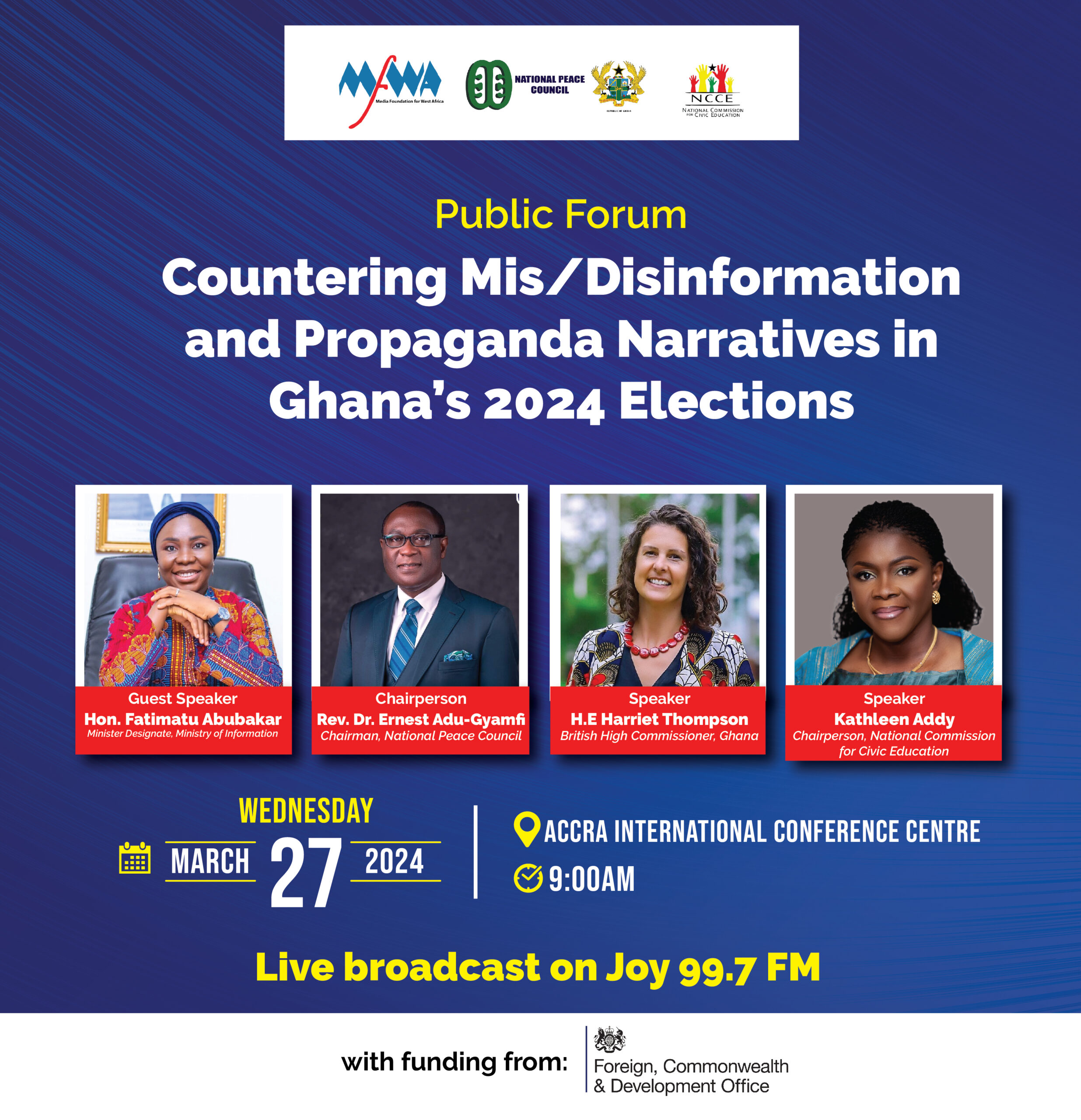Ghana’s democracy continues to show resilience, 32 years after the advent of its Fourth Republic. However, it remains a fact that every election year, the country’s peace architecture comes under significant stress as a result of spirals in intemperate language that directly stem from political campaigning.
Stakeholders agree that the escalation in the political temperature during election seasons is chiefly driven by misinformation, disinformation and propaganda by politicians, who amplify their toxic narratives through the media. As Ghana prepares to go to the polls in December 2024, it has become imperative that stakeholder efforts are made to tame the toxic narratives.
On March 27, 2024, the Media Foundation for West Africa will host a forum at the Accra International Conference Center (AICC) to put the issues in focus. It will be held under the theme: Countering Mis/Disinformation and Propaganda Narratives in the 2024 Elections in Ghana.
It is expected to bring together about 150 participants including governance and media experts, security analyst, legal experts, CSOs, public/state institutions, political parties, religious groups, journalists, the diplomatic community, and human rights activists.
Other participants will be members from the diplomatic community, religious groups and human academia.
Participants will deliberate on the phenomenon of mis/disinformation and propaganda narratives and their impact on the political discourse, media, peace, and security in Ghana.
They will also identify challenges, and proffer key recommendations on how the country can build resilience against mis/disinformation and propaganda narratives, as Ghana inches towards elections in December 2024.
The forum will be broadcast live on Joy FM and run from 9 am to 5pm.
It forms part of an eight-month project that the MFWA has been implementing to build and strengthen the ecosystem for countering mis/disinformation with funding support from the Foreign Commonwealth and Development Office.
As part of the project, 100 media practitioners across the country, including journalists and social media influencers, have been trained in fact-checking to enable them to spot and debunk mis/disinformation and propaganda narratives.






